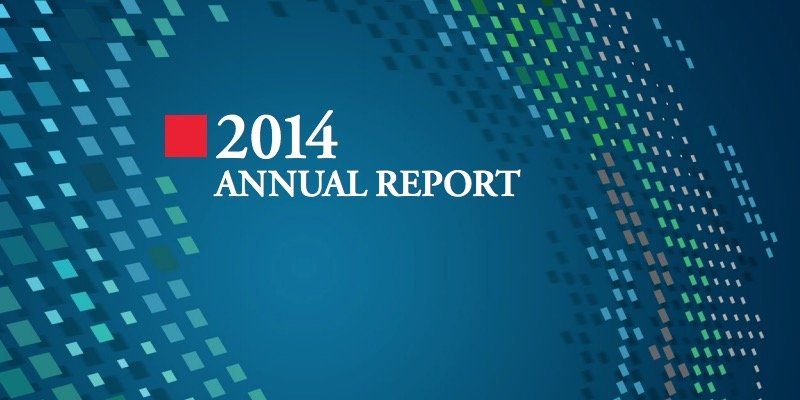2014 CMHC Annual Report
Yesterday morning CMHC released it’s 2014 Annual Report… and they weren’t messing around. This is a comprehensive 130 page document that if you started to read right now, you might finish in time for the release of the 2015 report next year.
Now, just in case you have an appetite for government correspondence like this, I have included the report in it’s entirety below along with the official press release.
Bon appetit!
CMHC Releases Its 2014 Annual Report
OTTAWA, May 7, 2015 — Canada Mortgage and Housing Corporation (CMHC) today released its 2014 Annual Report.
“I’m very proud of what we accomplished in 2014,” said Evan Siddall, President and Chief Executive Officer. “Beginning with a new mission, to help Canadians meet their housing needs, we took steps in all our areas of business to ensure our operations are aligned with CMHC’s refocused approach, and to be a high-performing organization to provide the most value to Canadians.”
In keeping with the Corporation’s focus on housing needs and in support of the Government’s efforts to reduce taxpayer exposure to the housing sector, CMHC made important changes to its mortgage loan insurance and securitization business. This included premium and fee adjustments, changes to policies for low-ratio insurance, and the discontinuation of some products, including mortgage loan insurance for second homes and for the construction of multi-unit condominiums.
In 2014, CMHC’s total net income of $2.6 billion was provided for primarily by mortgage loan insurance and securitization activities. Total insurance-in-force, which represents the aggregate exposure of the mortgage loan insurance activity, stood at $543 billion as at December 31, 2014, down $14 billion from the beginning of the year. Over the past decade, CMHC has provided $21 billion toward improving the government’s fiscal position; $18 billion of this contribution was provided through the mortgage loan insurance activity.
CMHC’s strong underwriting practices and sound mortgage loan insurance portfolio are reflected in the 2014 results. Average credit scores at origination were 731 for transactional homeowner and 760 for portfolio, and the average borrower equity in CMHC’s insurance portfolio has remained stable at 46%. Other key figures show mortgage loan insurance claims paid during the year decreased by 4% from 2013 while the arrears rate remained relatively unchanged at 0.35%.
CMHC follows risk management practices as set out by the Office of the Superintendent of Financial Institutions.
In 2014, CMHC provided $117.6 billion in guarantees through its securitization programs. These guarantees help both small and large lenders access funds for residential mortgage lending, supporting competition in the mortgage market and contributing to the stability of the financial system. In 2014, CMHC also announced increases to its guarantee fees. This is an important step toward further reducing taxpayer exposure to the housing sector and encouraging the development of private market funding options.
The federal government, through CMHC, also provided investments of more than $2 billion for housing in 2014, including funding to support households living in existing social housing on and off reserve, and approximately $302 million in new commitments of affordable housing.
Throughout the year, CMHC worked with provinces and territories to extend bilateral Investment in Affordable Housing agreements to 2019, which included additional funding for Nunavut. From April 2011 to the end of December 2014, 217,772 households are no longer in housing need as a result of this funding.
CMHC provides objective housing research and advice to Canadian governments, consumers and the housing industry. In 2014, it continued to improve the availability of information on the housing market through reports such as CMHC’s Insurance Business Supplement and tools like the Housing Market Information Portal and the House Price Analysis and Assessment Framework.
CMHC’s 2014 Annual Report is available online at www.cmhc.ca/annualreport or by calling 1-800-668-2642.
CMHC helps Canadians meet their housing needs. As Canada’s authority on housing, we contribute to the stability of the housing market and financial system, provide support for Canadians in housing need, and offer objective housing research and advice to Canadian governments, consumers and the housing industry. Prudent risk management, strong corporate governance and transparency are cornerstones of our operations.
Follow CMHC on Twitter @CMHC_ca
Media inquiries:
Charles Sauriol
CMHC Media Relations
613-748-2799
csauriol@cmhc-schl.gc.ca
|
|||||||||||||||||||||||||||||||||||||||||||||||||||||||||||
Katherine Martin
Origin Mortgages
Phone: 1-604-454-0843
Email: kmartin@planmymortgage.ca
Fax: 1-604-454-0842
RECENT POSTS






